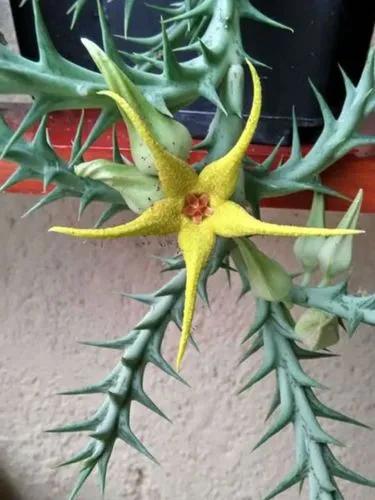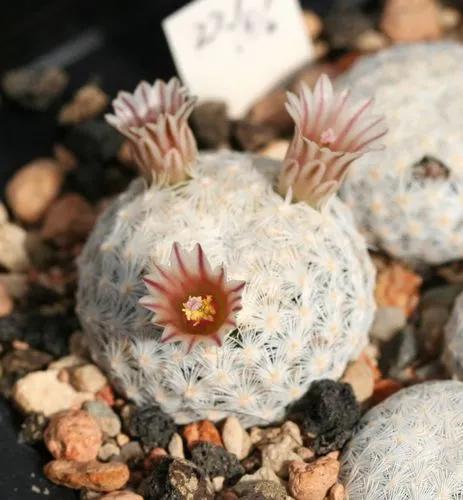Mammillaria spinosissima, also known as spiny pincushion cactus, is a species of flowering plant in the cactus family Cactaceae, endemic to the central Mexican states of Guerrero and Morelos where they grow at elevations of 1,600 to 1,900 meters.
Spiny pincushion cactus Care
Mammillaria spinosissima



Mammillaria is common cacti at shows and garden centers both for their appearance and their desirable traits in cultivation. This huge genus of plants contains at least 275 species of highly variable forms, and thus are highly prized among collectors. They are also known as powder puff cacti. Although this genus does include some plants that are very difficult to maintain, the most common ones are usually very easy and will stay small enough and grow slow enough to provide years of enjoyment. When they do flower, many species have a "crown" of flowers that surround the top of the plant like a wreath.
How to Care for the Plant

Water

Most cactus should be watered once a soil has completely dried out. Don't water on a schedule, but monitor a condition of a plant and dryness of a potting mix to know when to water a cactus. Factors such as size of cactus, size of pot, temperature, humidity and season will all affect how often to water cactus plants.

Pruning

Dead fronds and leaves can be removed.

Fertilizer

Most cacti and succulents don't need a specific blend. They grow healthy and happy when fed with a highly diluted all-purpose fertilizer. However, a low-nitrogen content, water-soluble fertilizer is best suited for the job. Use a 5-10-10 blend or 10-10-10 fertilizer diluted to 1/4th strength.

Sunlight

Grows it's best and fastest with full sun exposure, but it can do well in partial shade.

Soil

Mix together three parts potting soil, three parts coarse sand or gravel, and two parts perlite or pumice. Don't use a potting soil mix that contains fertilizers because the fertilizer can burn cacti roots and cause leggy growth.

Temperature

This cactus will thrive with temperatures between 70 to 80F. In the winter it will become dormant. Keep it in a dry, cool area at temperatures between 60 and 65F, which will encourage spring flowers. In the summer, they can be moved outside.

Container

Plants that don't like a lot of moisture will need a drainage hole for moisture to escape and for airflow to circulate through the pot. Another important function of drainage holes is to allow water to flush the soil of excess salts from fertilizers. Terracotta containers are a good choice for cactus gardens. They let water evaporate faster than other materials. Terracotta containers are a good choice for cactus gardens. They let water evaporate faster than other materials.

Popularity

38,086 people already have this plant 3,609 people have added this plant to their wishlists
Discover more plants with the list below
Popular articles






